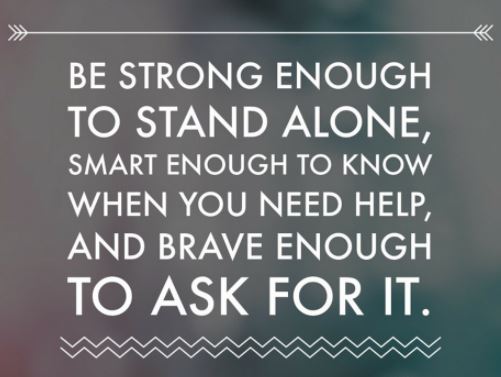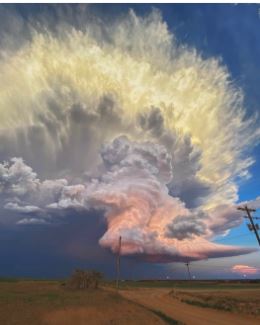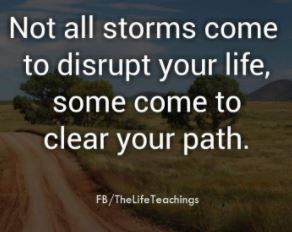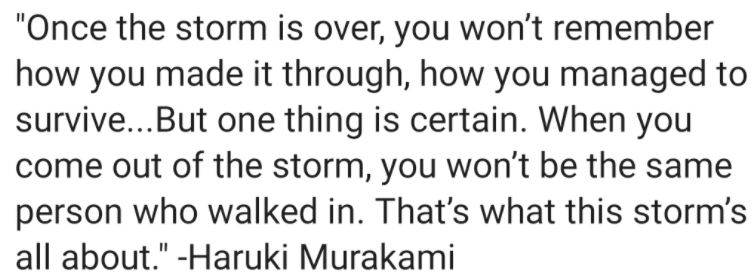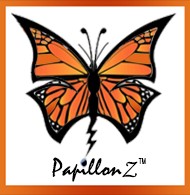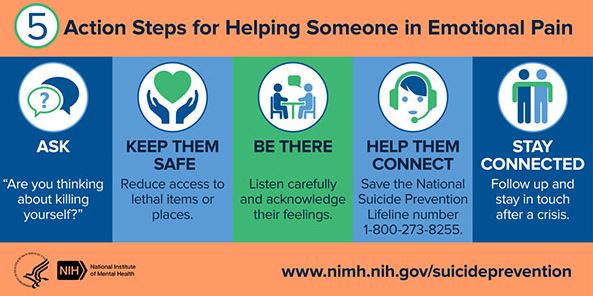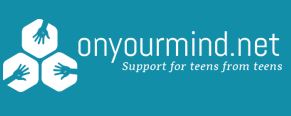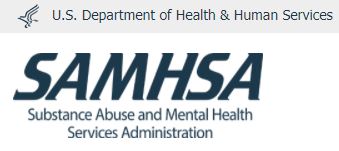Suicide and Self-Injury Prevention
Starting July 16, 2022, if you or someone you know is feeling helpless, hopeless, or in mental health crisis, call or text 988 in the U.S. for an immediate connection to the Suicide Prevention Hotline.
Learn more: reimaginecrisis.org/988lifeline
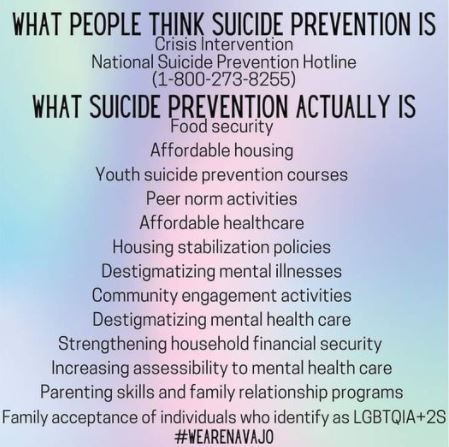
A Voice for the Innocent
A Voice For The Innocent is a safe, anonymous online community of support for victims of rape and sex abuse.
Join A Voice For The Innocent to share your support, or to share your story.
About
Blog Articles
Read Stories
Tell Your Story
Suicide & Self-Injury Prevention

Starting July 16, 2022, if you or someone you know is feeling helpless, hopeless, or in mental health crisis, call or text 988 in the U.S. for an immediate connection to the Suicide Prevention Hotline.
Learn more: reimaginecrisis.org/988lifeline
National Suicide Prevention Lifeline
HOTLINE 1- 800-273-TALK (8255)
Spanish HOTLINE 888-628-9454
TTY: 800-799-4TTY (4889)
Click here http://www.suicidepreventionlifeline.org to speak with a trained crisis counselor – or
Crisis Text Line
We can all help prevent suicide. The Lifeline provides 24/7, free and confidential support for people in distress, prevention and crisis resources for you or your loved ones, and best practices for professionals.
If you are a Veteran or service member with hearing loss, or any person concerned about someone who is, there are several ways to contact the Veterans Crisis Line:
- Text with a Veterans Crisis Line responder – Send a text message to 838255
- Online chat with a Veterans Crisis Line responder – Click here Suicide Prevention Chat: 24/7 Confidential Help – Veterans Crisis Line
- Homeless Veterans Chat: Suicide Prevention Help & Resources – Veterans Crisis Line
NATIONAL CALL CENTER FOR HOMELESS VETERANS – Call 1-877-4AID VET (1-877-424-3838)
TTY preferred relay or dial 711 then 1-800-273-8255
Free, Confidential Support for Homeless Veterans
Veterans who are homeless or at risk of homelessness can make the call to or chat online with the National Call Center for Homeless Veterans, where trained counselors are ready to talk confidentially 24 hours a day, 7 days a week.
The National Call Center for Homeless Veterans is also available by phone:
Call 1-877-4AID VET (1-877-424-3838)
The Veterans Crisis Line is also available by phone or text:
- Call 1-800-273-8255 and Press 1
- Text 838255
Who Can Call/Chat
- Veterans who are homeless or at risk of homelessness
- Family members, friends and supporters calling on behalf of Veterans
- VA Medical Centers and other VA facilities and staff
- Federal, state and local partners
- Community agencies and providers who serve Veterans who are homeless
Homeless Veterans Chat: Suicide Prevention Help & Resources – Veterans Crisis Line
S.A.F.E. (Self Abuse Finally Ends)
1- (800)-DONTCUT | (800)-366-8288
S.A.F.E. ALTERNATIVES®
is a nationally recognized treatment approach, professional network, and educational resource base, which is committed to helping you and others achieve an end to self-injurious behavior.
Philosophy
The S.A.F.E. ALTERNATIVES® philosophy begins with the assumption that, although temporarily helpful, self-injurious behavior is ultimately a dangerous and futile coping strategy which interferes with intimacy, productivity and happiness. There is no “safe” or “healthy” amount of self-injury. We also believe that self-injury is not an addiction over which one is powerless for a lifetime, people can and do stop injuring, with the right kinds of help and support. Self-injury can be transformed from a seemingly uncontrollable compulsion to a choice.
For more, please go to https://www.selfinjury.com
HealthyPlace
Mental Health Support, Resources & Information | HealthyPlace
“Healthyplace.com is the largest consumer mental health site on the net. We provide authoritative information and support to people with mental health concerns, along with their family members and other loved ones.
“At HealthyPlace.com, you’ll find comprehensive, authoritative information on psychological disorders, psychiatric medications, and other mental health treatments. We also have online psychological tests, breaking mental health news, and more.
“We believe the most important thing in a person’s life is “peace of mind”.
“And at HealthyPlace.com, we help bring that to you by providing mental health information from experts, as well as everyday people who are dealing with psychological disorders.
Learn More About HealthyPlace.com | HealthyPlace
On About Us, you will see a list of Conditions from “Abuse” to “Schizoaffective Disorder” which link to those Communities where you can find “tons” of valuable information, articles, books, and videos. (Some links are provided below for your convenience.)
They also have many, many Mental Health BLOGS! Including:
Mental Health for the Digital Generation | Trauma/PTSD | Verbal Abuse in Relationships (includes an article How Abuse Can Lead to Suicidal Thoughts | HealthyPlace)
Mental Health Support, Resources & Information | HealthyPlace
Conditions include:
- Abuse Information & Resources (Abuse Information, Emotional & Psychological Abuse, Physical Abuse, Domestic Violence, Teenage Dating Violence, Help)
- Addictions
- Anxiety, Panic, Phobias
- Depression (Types, Treatment, Self-Help)
- Dissociative Disorders (Types, Causes, Symptoms, Treatment)
- LGBT & Mental Health (much more, including links to many Psychological Tests)
- Self-Help
Click Here for Resources – Mental Health & Crisis
Click here for Resources – ONLINE THERAPY (Many are FREEE!!)
HelpGuide helps you help yourself
HelpGuide is a small independent nonprofit that runs one of the world’s top 10 mental health websites. Over 50 million people from all around the world turn to HelpGuide each year for trustworthy content they can use to improve their mental health and make healthy changes.
In Memory of Morgan Segal
“HelpGuide is dedicated to Morgan Leslie Segal, whose tragic suicide might have been prevented if she had access to better information.”
“Following Morgan’s death, her parents Robert and Jeanne Segal began sharing their grief and discovered that all too many others had experienced similar struggles. “The pain was so evident,” said Robert, “the subject so frightening, hidden, and loaded with stigma, that they don’t know where to turn.” They concluded that the best way to honor the memory of their daughter was by helping people in similar trouble by guiding them toward appropriate information and care.
“And so HelpGuide was born.”
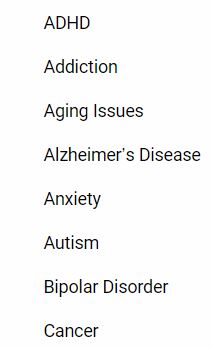
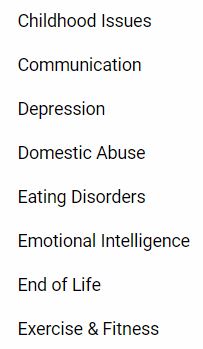
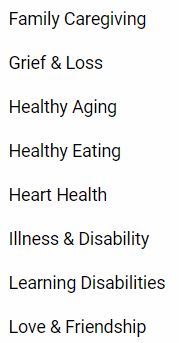
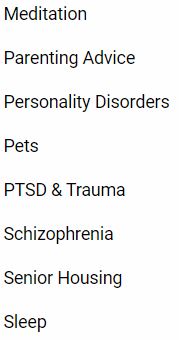
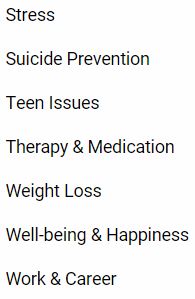
Indigenous / Native American Organizations
What does National Indigenous Women’s Resource Center do?
Native Womens Wilderness is an organization whose mission is to inspire and raise the voices of Native Women in the outdoor realm and encourage a healthy lifestyle grounded in the wilderness. Native Womens Wilderness also works on missing and murdered Indigenous women awareness.
Missing and Murdered Indigenous Women USA is a community-led initiative that focuses on the missing and murdered Indigenous women (MMIW) epidemic on both sides of the Canadian-U.S. border. There are systemic causes of the violence that causes the disproportionate rate of missing and murdered Indigenous women and girls, of which a great many cases go unsolved.
Across the United States and Canada Native Women and girls are being taken or murdered at an unrelenting rate. Native Hope exists to address the injustice done to Native Americans. We dismantle barriers through storytelling and impactful programs to bring healing and inspire hope.
Native Hope Resource Guide Addressing Native American Issues as a Non-Native for Allies
StrongHearts Native Helpline (1-844-762-8483, or strongheartshelpline.org) is a 24/7 safe, confidential and anonymous domestic, dating and sexual violence helpline for American Indians and Alaska Natives, offering culturally-appropriate support and advocacy.
The Center provides legal assistance to indigenous peoples of the Americas to combat racism and oppression, to protect their lands and environment, to protect their cultures and ways of life, to achieve sustainable economic development and genuine self-government, and to realize their other human rights. The Center’s Safe Women, Strong Nations project partners with Native women’s organizations and Indian and Alaska Native nations to end violence against Native women and girls. Our project raises awareness to gain strong federal action to end violence against Native women; provides legal advice to national Native women’s organizations and Indian nations on ways to restore tribal criminal authority and to preserve tribal civil authority; and helps Indian nations increase their capacity to prevent violence and punish offenders on their lands.
Alliance of Tribal Coalitions to End Violence
Tribal Coalitions: Increase awareness of domestic violence, sexual assault, and sex trafficking against American Indian and Alaska Native women.
Enhance the response to violence against women at the tribal, federal, and state levels; and identify and provide technical assistance to coalition membership and tribal communities to enhance access to essential services.
National Alliance on Mental Illness
HOTLINE 1-800-950-NAMI (6264)
Text NAMI to 741-741
Provides information and referral services –
not counseling.
They can help you find free or low-cost online therapists or resources.
SAMHSA’s National Helpline 800-662-HELP (4357) | TTY: 800-487-4889

Signs and Symptoms
The behaviors listed below may be signs that someone is thinking about suicide.
- Talking about wanting to die or wanting to kill themselves
- Talking about feeling empty, hopeless, or having no reason to live
- Making a plan or looking for a way to kill themselves, such as searching for lethal methods online, stockpiling pills, or buying a gun
- Talking about great guilt or shame
- Talking about feeling trapped or feeling that there are no solutions
- Feeling unbearable pain (emotional pain or physical pain)
- Talking about being a burden to others
- Using alcohol or drugs more often
- Acting anxious or agitated
- Withdrawing from family and friends
- Changing eating and/or sleeping habits
- Showing rage or talking about seeking revenge
- Taking great risks that could lead to death, such as driving extremely fast
- Talking or thinking about death often
- Displaying extreme mood swings, suddenly changing from very sad to very calm or happy
- Giving away important possessions
- Saying goodbye to friends and family
- Putting affairs in order, making a will
If these warning signs apply to you or someone you know, get help as soon as possible, particularly if the behavior is new or has increased recently.
Risk Factors
Suicide does not discriminate. People of all genders, ages, and ethnicities can be at risk. Suicidal behavior is complex, and there is no single cause. Many different factors contribute to someone making a suicide attempt. But people most at risk tend to share specific characteristics. The main risk factors for suicide are:
- Depression, other mental disorders, or substance abuse disorder
- Certain medical conditions
- Chronic pain
- A prior suicide attempt
- Family history of a mental disorder or substance abuse
- Family history of suicide
- Family violence, including physical or sexual abuse
- Having guns or other firearms in the home
- Having recently been released from prison or jail
- Being exposed to others’ suicidal behavior, such as that of family members, peers, or celebrities
Many people have some of these risk factors but do not attempt suicide. It is important to note that suicide is not a normal response to stress. Suicidal thoughts or actions are a sign of extreme distress, not a harmless bid for attention, and should not be ignored.
Often, family and friends are the first to recognize the warning signs of suicide and can be the first step toward helping an at-risk individual find treatment with someone who specializes in diagnosing and treating mental health conditions. See the resources on NIMH’s Find Help for Mental Illnesses page if you’re not sure where to start.
Suicide is complex. Treatments and therapies for people with suicidal thoughts or actions will vary with age, gender, physical and mental well-being, and with individual experiences. NIMH has focused research on identifying people at risk for suicide and identifying effective interventions.
Please visit NIMH » Suicide Prevention (nih.gov) for additional information.
Starting July 16, 2022, if you or someone you know is feeling helpless, hopeless, or in mental health crisis, call or text 988 in the U.S. for an immediate connection to the Suicide Prevention Hotline.
Learn more: reimaginecrisis.org/988lifeline
On Your Mind 24-HOUR HOTLINE
1-650-579-0350
“On Your Mind is a safe and anonymous place for teens to get information and support from other teens with a chat room, Monday through Thursday 4:30-9:30 PST.
“On Your Mind also provides resources about abusive relationships, cutting, depression, and other issues affecting teens.”
“Something on your mind?
Peer Supported Teen Crisis Chat”
“We are here to support you during this time of stress. The COVID 19 pandemic and the BLM movement against police brutality can bring up lots of different feelings. Let’s process together.”
SAMHSA’s National Helpline
1-800-662-HELP (4357)
Substance Abuse. Mental Health.
Find Help. Find Treatment.
SAMHSA – Substance Abuse and Mental Health Services Administration
DISASTER DISTRESS HELPLINE
1-800-985-5990 24/7
The Disaster Distress Helpline, 1-800-985-5990, is a 24/7, 365-day-a-year, national hotline dedicated to providing immediate crisis counseling for people who are experiencing emotional distress related to any natural or human-caused disaster. This toll-free, multilingual, and confidential crisis support service is available to all residents in the United States and its territories.
Stress, anxiety, and other depression-like symptoms are common reactions after a disaster.
Call or text 1-800-985-5990 to connect with a trained crisis counselor.
Alcohol, Tobacco & Other Drugs https://www.samhsa.gov/find-help/atod
Misusing alcohol, tobacco, and other drugs can have both immediate and long-term health effects.
Behavioral Health Treatment and Services https://www.samhsa.gov/find-help/treatment
Behavioral health treatments are ways of helping people with mental illnesses or substance use disorders. For example, counseling and more specialized psychotherapies seek to change behaviors, thoughts, emotions, and how people see and understand situations. Medications for mental and substance use disorders provide significant relief for many people and help manage symptoms to the point where people can use other strategies to pursue recovery. For many people, the most effective behavioral health approach involves a combination of counseling and medication. Early treatment is best. A trained professional should do a full evaluation to make the diagnosis. No single treatment works best. Treatments must address each person’s needs and symptoms.
Behavioral Health Treatment Locator https://findtreatment.samhsa.gov/
“Welcome to the Behavioral Health Treatment Services Locator, a confidential and anonymous source of information for persons seeking treatment facilities in the United States or U.S. Territories for substance use/addiction and/or mental health problems.
Disaster Distress Helpline https://www.samhsa.gov/find-help/disaster-distress-helpline
SAMHSA’s Disaster Distress Helpline provides 24/7, 365-day-a-year crisis counseling and support to people experiencing emotional distress related to natural or human-caused disasters.
The Disaster Distress Helpline, 1-800-985-5990, is a 24/7, 365-day-a-year, national hotline dedicated to providing immediate crisis counseling for people who are experiencing emotional distress related to any natural or human-caused disaster. This toll-free, multilingual, and confidential crisis support service is available to all residents in the United States and its territories. Stress, anxiety, and other depression-like symptoms are common reactions after a disaster. Call or text 1-800-985-5990 to connect with a trained crisis counselor.
Early Serious Mental Illness Treatment Locator https://www.samhsa.gov/esmi-treatment-locator Locator
What is SAMHSA’s National Helpline?
SAMHSA’s National Helpline, 1-800-662-HELP (4357), (also known as the Treatment Referral Routing Service) or TTY: 1-800-487-4889 is a confidential, free, 24-hour-a-day, 365-day-a-year, information service, in English and Spanish, for individuals and family members facing mental and/or substance use disorders. This service provides referrals to local treatment facilities, support groups, and community-based organizations. Callers can also order free publications and other information.
Also visit the online treatment locators.
What are the hours of operation?
The service is open 24/7, 365 days a year.
What languages are available?
English and Spanish are available if you select the option to speak with a national representative.
Starting July 16, 2022, if you or someone you know is feeling helpless, hopeless, or in mental health crisis, call or text 988 in the U.S. for an immediate connection to the Suicide Prevention Hotline.
Learn more: reimaginecrisis.org/988lifeline

TREVOR Lifeline:
1-866-488-7386 (24/7)
“Founded in 1998 by the creators of the Academy Award®-winning short film TREVOR, The Trevor Project is the leading national organization providing crisis intervention and suicide prevention services to lesbian, gay, bisexual, transgender, queer & questioning (LGBTQ) young people under 25.”
Trevor Lifeline
Trevor Chat
Trevor Text
Trevor Space
Trevor Support Center
AVAILABLE at https://www.thetrevorproject.org
Additional Resources
- Advocates and Shelters | WomensLaw.org (drop-down menu for your State)
- Click here to enter your zip code: Find Domestic Violence and Abuse Help, Information and Stats (domesticshelters.org)
Domestic Violence Support | The National Domestic Violence Hotline (thehotline.org)
- National Organizations | WomensLaw.org (listed by subject matter)
- Chat Rooms and Message Boards | WomensLaw.org
- VictimConnect (serves victims of crime in US (including assault, abuse, domestic violence, teen dating violence, trafficking, stalking, etc.), and make local referrals.
Mental Health Resources
